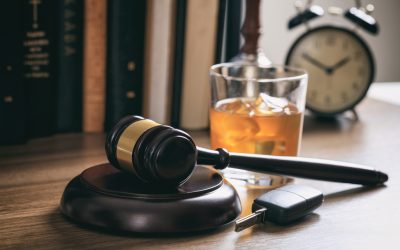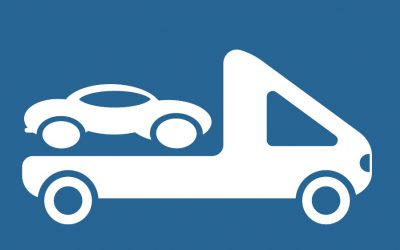
In the United States, the right to own a firearm is protected by the Constitution, but it is not without limitations, especially at the state level. One of these limitations applies to individuals with certain criminal convictions, including DUI (driving under the influence) convictions.
If you have been convicted of a DUI and reside in California, it is imperative to not only contact a Los Angeles DUI attorney but understand how this conviction may affect your ability to possess a firearm.
Firearm Ownership Restrictions in California
Under California law, individuals with felony convictions are generally prohibited from owning or possessing firearms, including those convicted of a felony DUI. Furthermore, individuals convicted of certain misdemeanors, including domestic violence offenses, are also restricted from firearm ownership.
It is worth noting that while a standard misdemeanor DUI conviction does not automatically cause a prohibition on firearm ownership, specific circumstances may influence the consequences of possessing a firearm.
If a person wishes to overturn their prevention from purchasing and owning weapons in California, they can attempt two methods. They can attempt to either obtain a Certification of Rehabilitation (COR) for a pardon from the Governor or petition the court to reduce the felony offense to a misdemeanor. In either case, it is strongly encouraged to leverage the support of a Los Angeles DUI Attorney.
Firearm Ownership Restrictions for Individuals with Felonies
Both federal and state laws impose restrictions on firearm ownership for individuals with certain criminal convictions. These restrictions aim to ensure public safety by preventing potentially dangerous individuals from accessing firearms. In California, a DUI conviction can fall under the category of criminal offenses that may impact your right to possess a firearm.
In California, DUI offenses are most often charged as misdemeanors, although they can be charged as felonies under certain circumstances, including:
- An individual’s fourth DUI in a 10-year period
- Vehicular manslaughter
- Serious injury caused by the driver under the influence
- Prior felony DUIs
It is essential to note that a standard misdemeanor DUI conviction alone does not automatically result in a prohibition on firearm ownership in California. However, additional factors or a felony conviction resulting from a DUI offense may lead to restrictions on firearm possession. It is always recommended to seek out the advice of a trusted lawyer to assess your case properly.
Who Is Prohibited from Gun Ownership in California?
Under California law, specific parties are prohibited from purchasing or owning guns under both state and federal laws. Some of the parties that may be considered “prohibited persons” include:
- Anyone that is the subject of a domestic violence restraining order
- Anyone that has a misdemeanor domestic violence conviction on their record
- Anyone convicted of a felony
- Fugitive from justice
- Anyone who has been convicted of a crime that required a minimum of one year in prison
- Military service members that have dishonorable discharges
- Foreign nationals
- Anyone addicted to controlled substances
- Anyone suffering from specific types of mental illness
Generally, if you are convicted of a basic misdemeanor DUI, you will not necessarily lose your right to own a firearm under the previously mentioned standards. However, under specific situations, you may lose your right to purchase or own a gun. These include:
CA Felony DUI
You might be under the impression that if this is your first DUI conviction, you should not lose your right to bear arms. However, if your first DUI is also considered a felony DUI, you can expect to have your gun rights taken away.
Although traditional DUIs may not initially be charged as felonies, if there are aggravating factors present or you are a habitual DUI offender, you can expect your charges to be elevated to the felony level. Some examples of aggravating factors that could result in a felony DUI include:
- Having a child passenger
- DUI near a public park or school
- A firearm being involved
- A victim suffering severe bodily injury or death
Furthermore, the three-strike law might apply, which could not only result in the loss of your firearm rights by a life sentence if this is your third strike. Make sure you have a knowledgeable and experienced DUI attorney in Los Angeles that is ready to help you protect your rights if you are charged with a felony DUI.
A Fourth DUI Conviction
If you are convicted of more than three phonies within a 10-year period, the fourth DUI conviction will be considered a felony-level offense. As previously mentioned, anyone with a felony conviction on their record will be prohibited from purchasing or owning guns or other types of deadly weapons. For this reason, getting your charges reduced to a lesser offense or entering a pretrial diversion program where possible should be a top priority so you can avoid the fallout of a conviction.
Military Service Members
It is more common than you might think for military service members to be charged with and convicted of criminal offenses. If a military service member is convicted of a first-time DUI, they will not necessarily be subject to a dishonorable discharge, but it is possible.
If you are convicted of multiple DUIs, or there are sentencing enhancements or aggravating factors that elevate your DUI from a misdemeanor to a felony, it is possible your branch of the military will find it necessary and appropriate to dishonorably discharge you. If you face a dishonorable discharge, you will no longer be allowed to carry or purchase firearms.
Owning a Firearm with a DUI Conviction
While a standard misdemeanor DUI conviction does not automatically bar firearm possession in California, felony DUI convictions and certain misdemeanor offenses can lead to restrictions on owning firearms.
It is vital to consult with a Los Angeles DUI attorney to evaluate your specific circumstances and navigate the legal implications of your DUI conviction. By understanding the laws and seeking professional guidance, you can ensure compliance with firearm ownership restrictions while retaining your rights and ensuring the public’s safety. Fill out our secured contact form or call us to schedule your free consultation as soon as today.







